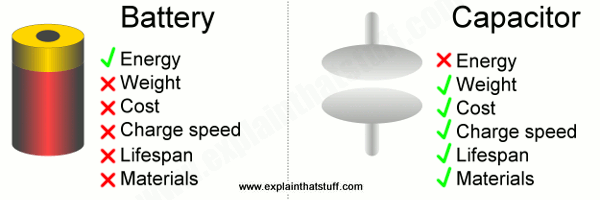Search by topic:

Supercapacitors charge and discharge rapidly, don't lose total capacity over time like batteries do, can operate in a wide range of temperatures and can be super light and thin. But unlike batteries, they can't provide a steady, slow release of energy, they can't really hold onto a lot of energy, nor can they hold onto their charge for too long and their energy density tends to be lower.
But what if you could combine the best of a supercapacitor with the best of a battery?
Researchers at QUT might just have done that, creating a long-life, super-charged material.
https://www.qut.edu.au/research/article?id=173028